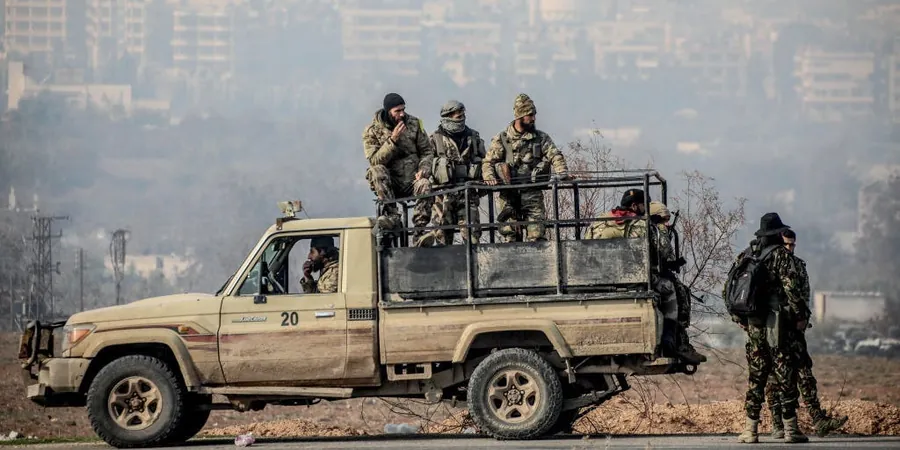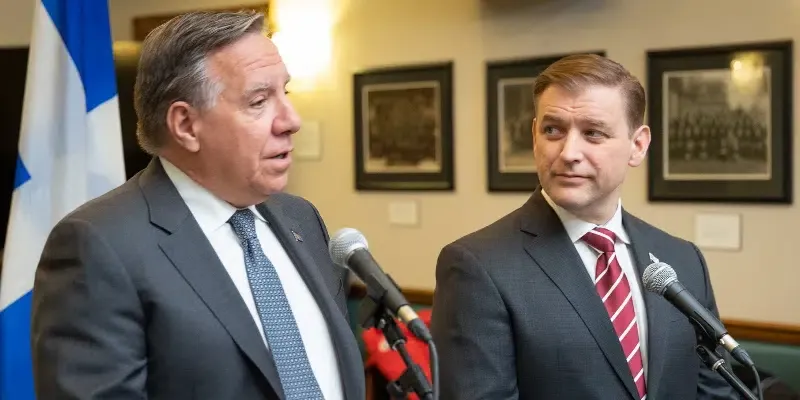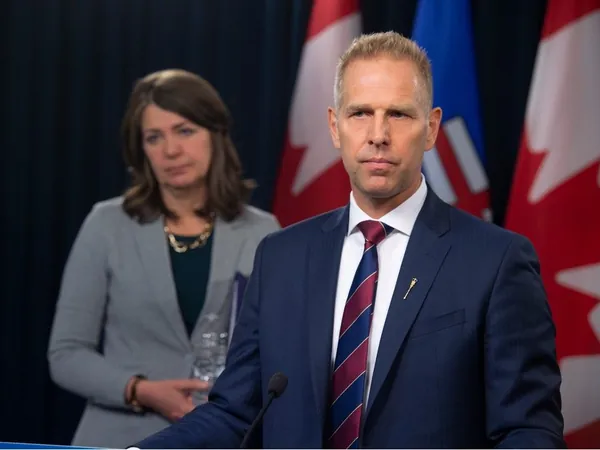
Major Shake-Up in Syria: Trump Declares Assad Has Fled as Rebels Claim Victory in Damascus
2024-12-08
Author: Noah
In a stunning turn of events, former President Donald Trump declared that Syrian President Bashar Assad has "fled his country," coinciding with reports from rebel forces that they have taken control of the capital, Damascus. This momentous declaration, made via Truth Social on Sunday, signals a dramatic shift in the ongoing Syrian conflict.
Trump stated emphatically, "Assad is gone," attributing the regime's apparent demise to Russia's waning support. He suggested that Vladimir Putin, Russia's president, has lost interest in protecting Assad, a key ally for almost a decade.
The announcement follows a significant offensive launched by opposition forces, primarily led by Hayat Tahrir al-Sham, an Islamist group connected to Al Qaeda. Rebel commander Hassan Abdul-Ghani declared on social media: "We declare Damascus free from the tyrant Bashar al-Assad," declaring the date, December 8, 2024, as a turning point for Syria.
As the situation unfolds, the Biden administration is reportedly "closely monitoring" these developments, maintaining communication with regional partners. This has raised concerns over the geopolitical ramifications of Assad's potential downfall, particularly for Assad's strongest allies—Russia and Iran.
The offensive has already seen the rebels capture vital cities such as Aleppo and Hama, and the fall of Homs could sever Damascus’s connection to the coast, significantly impacting the Assad regime’s support systems.
For Russia, maintaining military presence in Syria is crucial, particularly with the strategic Hmeimim airbase and Tartus naval base, which provide vital access to the Mediterranean. Losing these positions could derail many of Putin's regional ambitions, especially in light of shifting priorities toward the conflict in Ukraine.
The Russian embassy in Syria recently advised nationals to evacuate, highlighting the escalating instability. Similarly, Iran's interests in Syria—which serve as a crucial corridor for logistical support to its proxies, including Hezbollah—are now threatened, especially as Tehran faces its own set of challenges, including rising tensions with Israel.
While the potential collapse of Assad's regime sends shockwaves throughout the region, it could also signify a shift in alliances and power balances, with both Russia and Iran currently in a precarious state.
As Trump called for an immediate cease-fire in Ukraine, he asserted that now more than ever is a critical time for negotiation, urging global leaders to seize this moment. “The world is waiting,” he claimed, hinting at previously undisclosed diplomatic ties that could reshape the unfolding crisis.
In summary, the shifting dynamics in Syria point not only to a potential change in the government but also raise serious questions about future regional stability and the influence of global powers. Keep your eyes on developments—this could reshape the Middle East landscape as we know it!









 Brasil (PT)
Brasil (PT)
 Canada (EN)
Canada (EN)
 Chile (ES)
Chile (ES)
 España (ES)
España (ES)
 France (FR)
France (FR)
 Hong Kong (EN)
Hong Kong (EN)
 Italia (IT)
Italia (IT)
 日本 (JA)
日本 (JA)
 Magyarország (HU)
Magyarország (HU)
 Norge (NO)
Norge (NO)
 Polska (PL)
Polska (PL)
 Schweiz (DE)
Schweiz (DE)
 Singapore (EN)
Singapore (EN)
 Sverige (SV)
Sverige (SV)
 Suomi (FI)
Suomi (FI)
 Türkiye (TR)
Türkiye (TR)